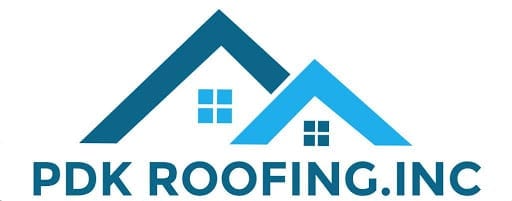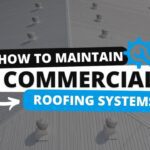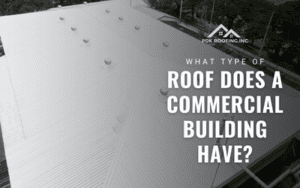
What type of roof does a commercial building have? Commercial and residential roofing systems serve the same fundamental purpose of protecting your property or home from the weather, but that is where the similarities end. The most significant distinction between commercial and residential roofing systems is the roof pitch, which is dictated by the size of the building. Residences often have a roof with a high slope visible from the ground and are constructed with materials such as architectural tile, asphalt shingles, and slate. On the other hand, due to the larger size of commercial buildings, their roofs are often flat or low slope and are not visible from the ground.
When it comes to commercial buildings, the type of roof used can also vary greatly depending on the purpose of the building and its location. So let’s explore the different types of roofs commonly used for commercial buildings and discuss their advantages and disadvantages.
Flat Roofs
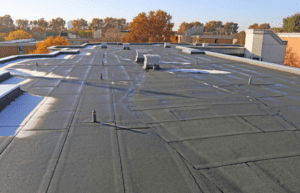
Flat roofs (or low-slope roofs) are one of the most popular choices for commercial buildings because they are cost-effective and easy to install. For the same area, a pitched roof will cost thousands of dollars more than a flat roof. Thus, making it a popular roofing system for warehouses, big box retailers, and shopping malls.
They also provide a large amount of usable space on top, which can be used for things like solar panels, air conditioning units, or even a rooftop garden. Flat rooftops are also the perfect location for solar panels. By installing these energy-efficient and eco-friendly solutions on a flat roof, you can optimize the ideal solar panel to maximize its effectiveness.
However, a flat roof may require extra attention because of potential drainage difficulties. Pitched roofs quickly drain water, while flat roofs require regular maintenance to prevent water from pooling on top and causing damage. They are also not as stylish or attractive.
Steep Sloped Roofs
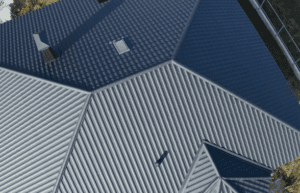
Sloped roofs are often used in areas with heavy snowfall or high winds as they provide better protection against these elements than flat roofs. In addition, they require little maintenance as debris rolls or slides off, eliminating the need to clean the roof, remove standing water, or relieve the weight of accumulated debris.
Additionally, steep sloped roofs offer a classic and visually pleasant appearance that complements various building styles, making them a popular choice for commercial buildings in areas where aesthetics matter. Popular roofing materials for this system include metal, shingles, slate, and tile.
However, sloped roofs can be more expensive to install than flat roofs and require more maintenance due to their complex design. They also reduce rooftop utility space, which is a significant downside. In addition, major systems and equipment can be concealed from ground view above the roof on large commercial buildings with low slopes. This is difficult or even impossible on a steeply sloping roof.
When choosing the right type of roof for your commercial building, there is no one-size-fits-all solution. Each roofing system has its own set of advantages and disadvantages that needs to be considered before deciding which option is best suited for your needs. It’s crucial to weigh all factors before committing to any particular choice to ensure you’re getting the best possible outcome for your building’s roofing needs!
If you require commercial roofing services in Port St Lucie, FL, you can depend on PDK Roofing’s well-trained team of commercial roofing contractors for all your roofing needs, including roof repair, reroofing, and more!
